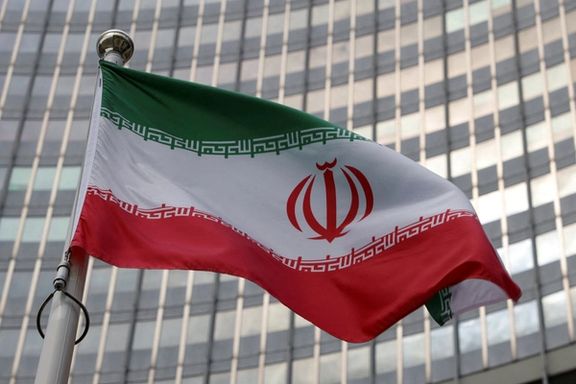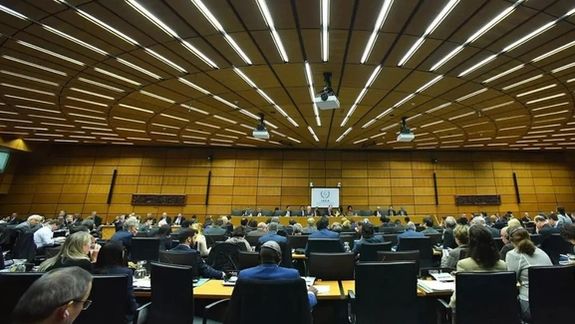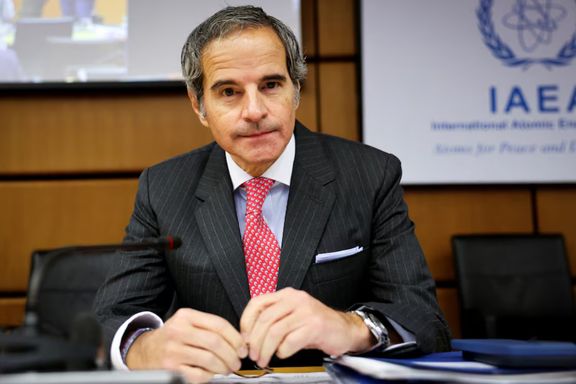UN nuclear watchdog censures Iran, urges more cooperation

The International Atomic Energy Agency's (IAEA) 35-nation Board of Governors passed a resolution on Thursday criticizing Iran and ordering better cooperation with the UN nuclear watchdog.

The International Atomic Energy Agency's (IAEA) 35-nation Board of Governors passed a resolution on Thursday criticizing Iran and ordering better cooperation with the UN nuclear watchdog.
Iran condemned the move and ordered the activation of advanced centrifuges in response.
The resolution, backed by Western nations including France, Germany, and the United Kingdom (E3), follows months of heightened tensions over Iran’s uranium enrichment.
It cites ongoing violations of a 2015 international deal called the Joint Comprehensive Plan of Action (JCPOA), with Tehran now holding a stockpile of enriched uranium more than 32 times the limit under the agreement.
Nineteen countries voted in favor and three - China, Russia and Burkina Faso - against, with 12 abstaining during the quarterly meeting of the Board of Governors.
Iran bashed the resolution, saying it lacked the support of nearly half of the IAEA's member states and was pushed through by the United States and the three European sponsors to advance their political agendas.
Referring to a recent visit to Tehran by IAEA chief Rafael Grossi, Iran's foreign ministry said on X: "This politicized, unrealistic, and destructive approach undermines the positive atmosphere created and the understandings that have resulted from it."
The statement added that Iran was activating advanced centrifuges in retaliation but that the country's nuclear program would remain peaceful.
The resolution follows a similar IAEA rebuke in June calling on Iran to step up cooperation with the watchdog and reverse its recent barring of inspectors despite concerns Tehran would respond by boosting its activities.

E3 flags nuclear escalation
In a joint statement delivered to the IAEA board, France, Germany, and the UK expressed alarm over Iran’s stockpile of uranium enriched to 60%, a level well beyond civilian use and close to weapons-grade.
“Iran now has well over four IAEA significant quantities of uranium enriched up to 60%, the approximate amount of nuclear material from which the possibility of manufacturing a nuclear explosive device cannot be excluded,” The E3 said.
The statement said that over the past five months, Iran had installed six additional cascades of advanced centrifuges at its Natanz facility, significantly increasing its enrichment capacity.
It also criticized Iran’s continued restrictions on IAEA inspectors, including the de-designation, or revocation of accreditation, of experienced personnel which has impeded the Agency’s ability to verify Tehran’s claims of peaceful intentions.
Iran responds with warnings
Iranian officials had previously dismissed the resolution, accusing the E3 and their allies of undermining recent diplomatic efforts. Foreign Minister Abbas Araghchi told his French counterpart on Wednesday that the move complicates matters and contradicted the "positive atmosphere created between Iran and the IAEA.”

Tehran had recently proposed halting its enrichment of uranium to 60% but only after accumulating a stockpile of 185 kilograms. While this offer was mentioned in Grossi’s latest report, Western diplomats dismissed it as insufficient, noting that the material could easily be further enriched for weapons purposes.
Iran has maintained that its nuclear program is solely for peaceful purposes, a claim met with skepticism by Western powers citing Iran’s lack of transparency and history of non-compliance.
Long-running disputes
The IAEA resolution also addressed unresolved issues, including the presence of unexplained uranium traces at undeclared sites and limited access for inspectors to critical facilities. Grossi’s recent trip to Tehran aimed to persuade Iranian leaders to improve cooperation and return to broader negotiations.
The resolution is seen as a step toward potentially referring Iran’s nuclear dossier back to the UN Security Council, where Western nations could trigger a so -called snapback mechanism to reinstate international sanctions lifted under the JCPOA.